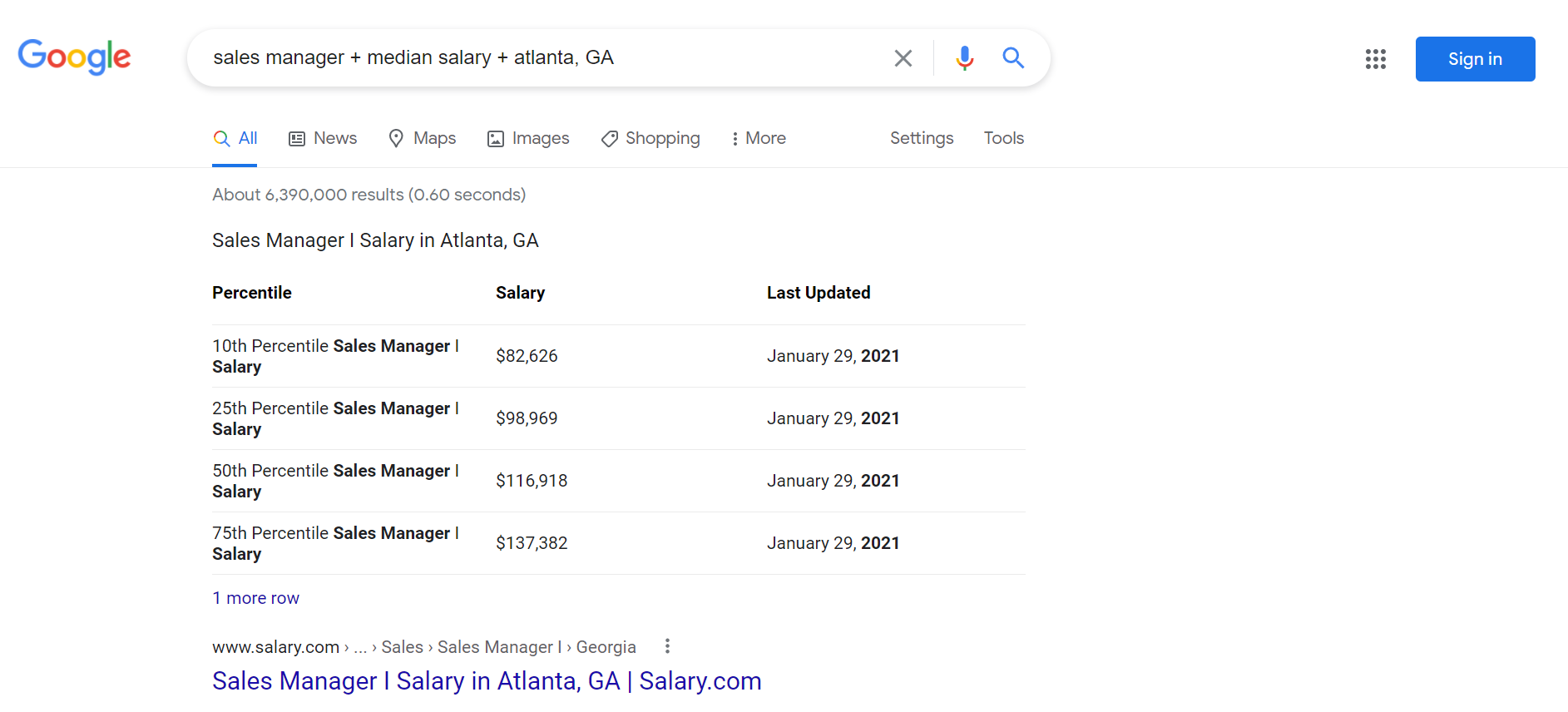Salary can be a key factor for candidates when deciding to accept your job offer, and for employees considering whether or not to stay. While salary can be dependent on a number of factors including the internal budget, the cost of living in your area, experience or seniority of the candidate, and perhaps even previous salaries.
Applicants do research before applying in order to know their worth. Being able to present a competitive offer will help you avoid rejections, and can even help you retain your staff.
There are a number of resources available to employers to help you maintain your competitive advantage.
- BLS Wage Data by Area and Occupation Over 800 job titles BLS wage data are available by occupation for the nation, regions, states, and many metropolitan and nonmetropolitan areas. Note this amazing resource is also available to download to Excel.
- Glassdoor Salary Calculator allows applicants to share the salaries for their roles and for you to compare by role, location and experience.
- Payscale PayScale combines salary data with superior software utilizing AI and the most advanced reporting tools available to help individuals know their worth and employers to get pay right.
- Salary.com For employers that provides trusted data and the intuitive software you need to make compensation decisions with confidence.
- State Minimum Wage Laws (Department of Labor)
- How to Establish Salary Ranges (SHRM)
Search Tips:
You can even do a Google Search using Job Title + Median Salary + Metro Area. Results are shown from Salary.com.

Niche Industries or Unique Roles
For companies in niche industries, specific (uncommon) roles, or roles where the employee has a combination of different jobs, it can be a little more difficult to pinpoint a salary range. To find a competitive rate, after starting with your Google search, we recommend searching for similar roles on Indeed.com to see what other companies in your industry are offering. It may help you compete.
Add Your Salary or Salary Range to the Job Description
We also recommend adding your salary range or hourly rate to your job description when you are posting your job in iRecruit. When the job gets posted to job boards such as Indeed, Monster, ZipRecruiter or other niche sites, they will pull this information from your iRecruit listing. This helps push your job listings to the top of the search results as job descriptions that contain salary are ranked higher than those that do not contain this information. In addition, it will help you attract candidates who are looking for the salary you are offering, and eliminates those who think it’s too high or too low for them.
When Your Salary Is Lower Than Average
Some industries just can’t maintain a competitive salary, they may have a fixed budget, they still need staff. So what do you do when you can’t match the rates of the competition? One word: Benefits. “Salary” is just one element of a compensation package after all. You can offer various benefits that are attractive to applicants, PTO, flex time, remote working, free lunches, time off to volunteer, student loan repayments to name a few.
Request Desired Salary On Your Employment Application
Adding a field to your employment application for “desired salary” will help give you a bigger picture from your applicants, by position. You can create a report in iRecruit to pull the data into Excel to use to set salaries for a role, or to compare applicants by desired salary.
About iRecruit
![]() iRecruit is a cloud-based recruiting and applicant tracking and electronic onboarding software designed to provide any size of business a cost effective, affordable and truly simple way to manage the recruiting and onboarding process online. With options for Express, Professional and Enterprise, you can find a flexible recruiting solution that meets your needs.
iRecruit is a cloud-based recruiting and applicant tracking and electronic onboarding software designed to provide any size of business a cost effective, affordable and truly simple way to manage the recruiting and onboarding process online. With options for Express, Professional and Enterprise, you can find a flexible recruiting solution that meets your needs.







